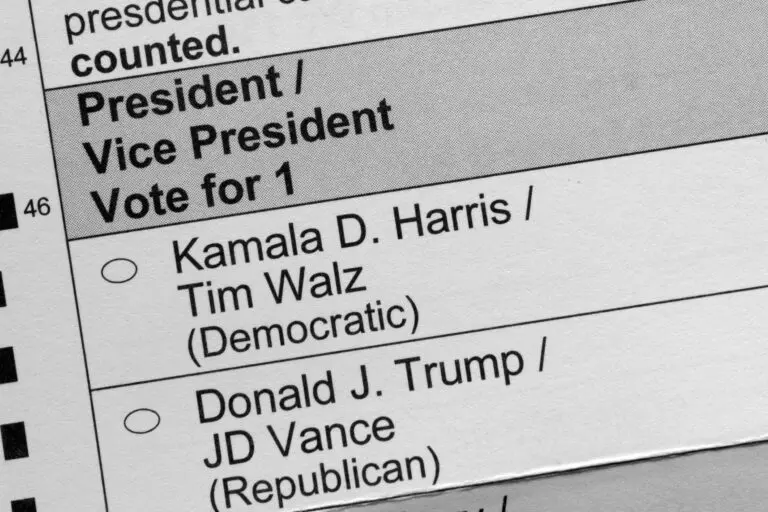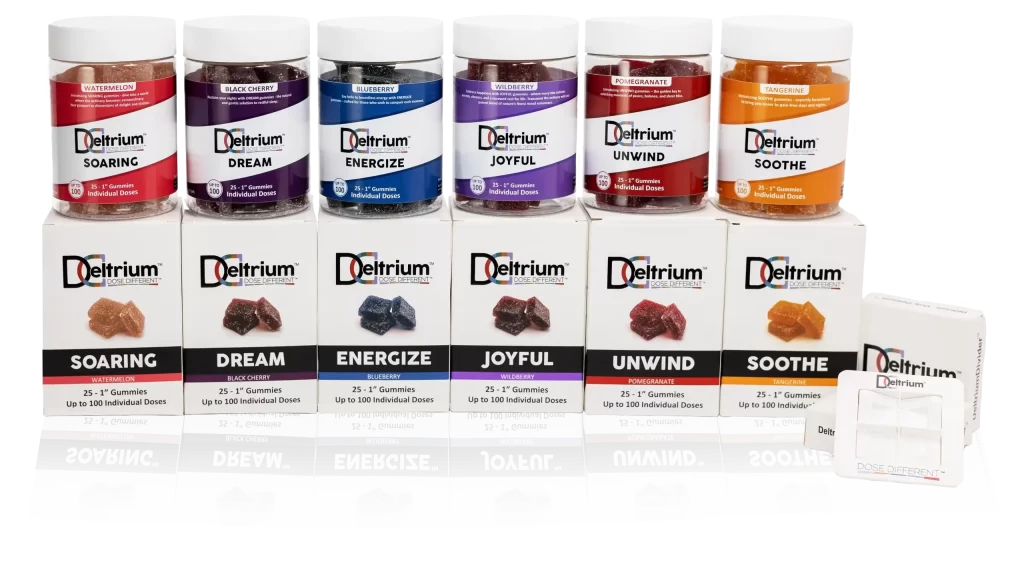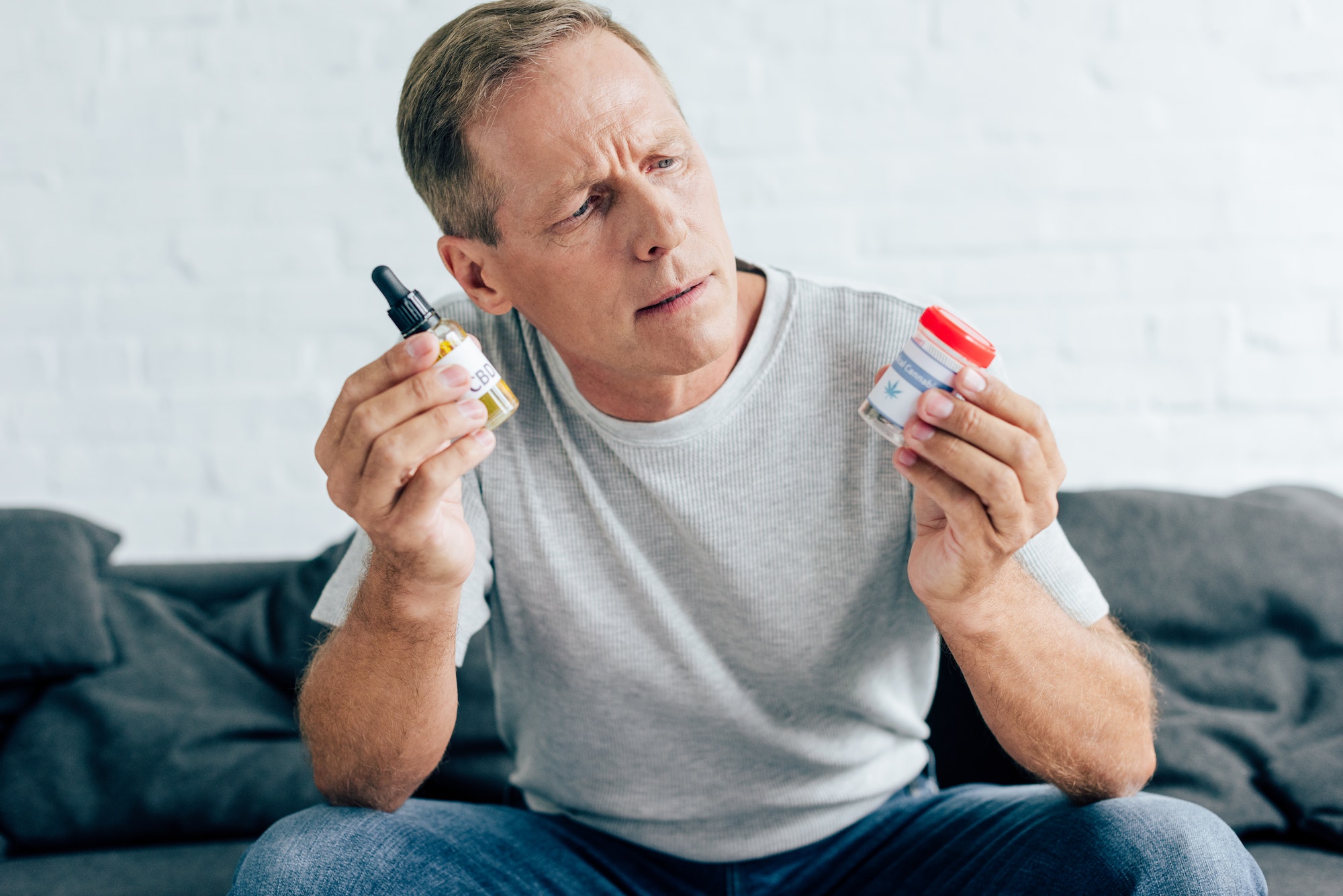
Harris and Trump take Cannabis on Campaign Trail

In a presidential election that, according to the polls, is every bit as close as any we’ve seen in our lifetimes, even the smallest of things can mean the difference between winning a crucial swing state and losing one. Could legalizing cannabis be such an issue in 2024?
The answer is a definite maybe. And both candidates know it.
Over the last week or two, both Democratic candidate, Vice President Kamala Harris and former President and Republican presidential candidate, Donald Trump finally made the issue of legalizing cannabis part of their respective presidential campaigns.
It really shouldn’t come as a surprise, today’s polarized times be damned, the issue of legalizing marijuana has become politically safe.
Americans today are overwhelmingly in favor of legalizing cannabis. A recent public opinion poll by the Pew Research Center, reported 88 percent of respondents said that cannabis should be legal for medical or recreational use by adults.
That’s a freakishly gigantic percentage, right? I’m not even sure which other issue would enjoy that degree of widespread bi-partisan support. I mean, a recent YouGov poll found only 60 percent of Americans agree on providing school lunches.
(If you want to know the details, Pew’s poll found that 57 percent of Americans think cannabis should be legal for BOTH medical and recreational use by adults… the medical-use-only crowd came in at 32 percent. Only 11 percent of respondents said cannabis shouldn’t be legal for any reason.)
We’ve come a long way, baby.
Gallup first asked the question about legalizing marijuana in 1969. Back then there were only 12 percent of Americans in favor of legalizing weed. By 2013, after Colorado and the State of Washington had both passed laws legalizing recreational use of cannabis, Gallup’s polls saw 58 percent in favor of legalization.
So, today’s 88 percent “in favor,” breaks all existing records.
Make no mistake about it, essentially nine out of 10 Americans are finally tired of marijuana appearing on the same list as heroin or fentanyl, and that makes it politically safe for candidates to take a position on whether it should be legalized.
With both candidates aggressively courting the youth vote, and the race coming down to ultra-slim margins in a small handful of states, who knows… the issue could very well end up tipping scales on election night.

Harris goes ALL IN.
Last week, Vice President Harris certainly took the lead in that regard, formally pledging to federally legalize marijuana and making her position part of her campaign’s Opportunity Economy platform. According to the Harris/Walz campaign website, if elected she will:
“… break down unjust legal barriers that hold Black men and other Americans back by legalizing marijuana nationally, working with Congress to ensure that the safe cultivation, distribution, and possession of recreational marijuana is the law of the land.”
This represents the first time that Harris has made her position on marijuana part of her current campaign for the White House. As a senator, Harris previously pushed for cannabis to be legalized, but she had not publicly discussed the issue since becoming President Joe Biden’s running mate in 2020.
Trump’s in too… sort of.
Donald Trump has been less clear as to what he has planned related to cannabis should he assume the presidency. However, in September, he said that he supports a Florida ballot initiative that would legalize recreational use of marijuana for adults ages 21 years and older. As to any potential criminality associated with the use of marijuana, Trump has also said recently:
“I believe it is time to end needless arrests and incarcerations of adults for small amounts of marijuana for personal use. As a Floridian, I will be voting YES on Amendment 3 this November.”
Recently, and not surprisingly, Trump also got behind the efforts to make it easier for banks to serve cannabis businesses that operate in accordance with state laws, saying:
“As President, we will continue to focus on research to unlock the medical uses of marijuana to a Schedule 3 drug, and work with Congress to pass common sense laws, including safe banking for state authorized companies.”
Trump’s pro-cannabis stance, at least thus far being limited to the Florida bill, combined with his guarded comment about “unlocking medical uses” and the re-scheduling of marijuana to Schedule 3, fails to make clear what exactly he plans to do when it comes to cannabis should he win in November.
As President, Trump was essentially mute on the issue of cannabis legalization. He did sort-of endorse a bipartisan bill that would have codified a federal policy respecting states’ rights related to legalizing cannabis. So, one might conclude that Trump will ultimately leave the decision to the states, while backing long-needed federal safe banking legislation that would allow cannabis companies to access banking just like other businesses.

Harris makes cannabis an “opportunity.”
Meanwhile, Harris is going ALL IN, making it part of her “Opportunity Agenda,” which is at least in large part, aimed at winning the votes of African-American men in particular. According to the Harris campaign:
“This pathbreaking agenda includes… legalizing recreational marijuana and creating opportunities for Black Americans to succeed in this new industry.”
To that end, the Harris campaign promises that she will “fight to ensure that as the national cannabis industry takes shape, Black men—who have, for years, been overpoliced for marijuana use—are able to access wealth and jobs in this new market.”
Harris is also on the attack over the issue, saying that former President Donald Trump’s administration “threatened federal prosecutions for marijuana in states where marijuana use is legal, continuing the unjust and disproportionate use of marijuana possession laws to put Black Americans behind bars.”
This statement is a reference to Trump’s first attorney general who removed Obama-era enforcement guidance that, in general, directed federal prosecutors to respect state cannabis laws. While this is true, it is also true that no significant federal actions against state-legal marijuana businesses were initiated as a result.
Trump also recently attacked Harris’ record prosecuting cannabis cases, claiming that she was responsible for “thousands and thousands of Black people going to jail” for cannabis offenses—but that isn’t exactly true.
Fact checkers have found roughly 1900 cannabis-related convictions by the San Francisco District Attorney’s office under Harris’ direction. It’s not clear exactly how many were held in jail temporarily, but only 45 individuals went to state prison as a result.
While Trump’s attack was misleading, it is also worth paying attention to, because it represents a GOP presidential nominee making clear that he disagrees with criminalizing people over marijuana use, an unfamiliar refrain within the GOP.

Our government in action.
All of this last-minute posturing by the presidential candidates comes amid an ongoing process of moving marijuana to the less-restrictive Schedule III of the Controlled Substances Act (CSA). This past Spring, Department of Health and Humans Services (HHS) formally recommended that cannabis, which is now classified as Schedule I of the Controlled Substance Act (CSA), be reclassified to Schedule III.
To give you an idea how ridiculous that is, Schedule I drugs include: heroin, LSD, ecstasy, methaqualone, peyote… and marijuana or cannabis. A list of Schedule II drugs, which are considered LESS DANGEROUS than their Schedule I brethren includes: cocaine, fentanyl, methamphetamine, OxyContin, methadone, Demerol… are you getting the idea?
Does anyone seriously compare cannabis with any of those drugs found on Schedule I or II?
No. The answer is a resounding no. No one does.
In April 2024, the DEA looked like it was about to approve rescheduling cannabis, going so far as to issue a proposed rule to allow for the change under federal law. Then, on May 24, 2024, the DEA (Drug Enforcement Agency) announced a 60-day public comment period, intended to provide an opportunity for Americans to comment on the change to federal drug policy.
Comments came from literally everywhere and in record number. At the end of the public comment period on July 22nd, 2024, 43,000 comments had been submitted, which is 10 TIMES the number of comments normally received during such a period.
A cannabis research firm, Headset, published an analysis of the comments received by the DEA, determined that a staggering 92.45 percent supported rescheduling cannabis to Schedule III of the CSA. Only 7.5 percent opposed it.
And, even more importantly, 62 percent preferred that cannabis be DESCHEDULED completely, while 38 percent were in favor of rescheduling to a classification less onerous than Schedule III.

The jury is in and the verdict is clear: Americans want cannabis legalized, period.
Of course, with 43,000 comments in hand, the DEA then did what federal agencies often do… they scheduled a public hearing for December 2, 2024… which is obviously after the upcoming presidential election, so any change will have to take place under the next administration.
Now, it’s all about campaigning on the one issue that’s been missing… the issue that can resonate with both young and not-so-young… the issue that candidates are paying much closer attention to than they ever have in the past… the issue that the Harris campaign believes can make the difference on November 5th… the issue of cannabis legalization.
And, yes… you read it here first: She just might be right.
# # #
Martin Andelman is the co-founder and CEO of Deltrium, a super-premium brand of legal THC based gummies that are double blind lab tested, blending cannabinoids to create specifically targeted effects. Deltrium is the only company that provides a scientific dosing algorithm that provides users with their individualized optimal initial dose, so no one takes too much or too little. Martin is a veteran CEO and an experienced blogger and highly-rated speaker. He is 63 years-old and lives with his wife in Cary, North Carolina. For more information, visit Deltrium.com.

Related Post
Search
Want to sell Deltrium in your store?
Learn more about wholesale and the Deltrium experience.




